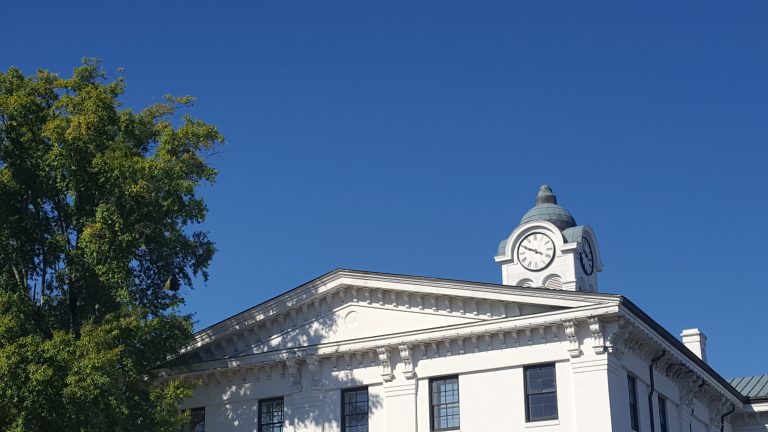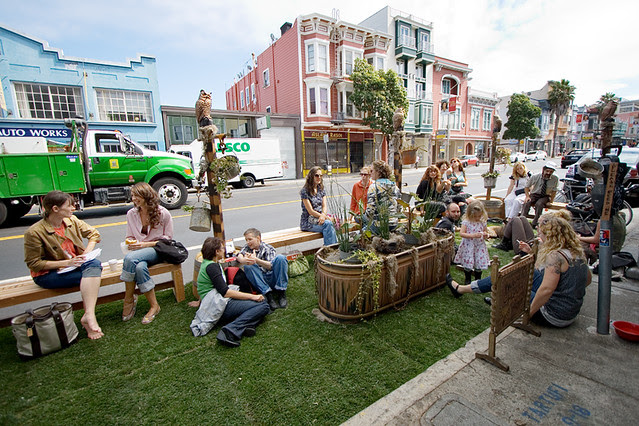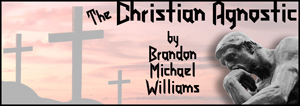 IN THE BEGINNING stages of this article, an idea arose to try and give answers to the difficult questions that come along with accepting a certain religion or the belief in God. Somewhere along the line I realized that was impossible. There are very few universal truths in the world and how we, as a people, define God (or a relationship with this God) is definitely not one of them. The minute we run a monopoly on the truth of God is when we unfortunately find that we are worshiping a god held in the box of our finite minds. So, in an age of radical fundamentalism and economical evangelism, how does the modern man believe in God? The only answer I can find (and not “the answer,” lest I be refuting myself) is that belief is synonymous with doubt.
IN THE BEGINNING stages of this article, an idea arose to try and give answers to the difficult questions that come along with accepting a certain religion or the belief in God. Somewhere along the line I realized that was impossible. There are very few universal truths in the world and how we, as a people, define God (or a relationship with this God) is definitely not one of them. The minute we run a monopoly on the truth of God is when we unfortunately find that we are worshiping a god held in the box of our finite minds. So, in an age of radical fundamentalism and economical evangelism, how does the modern man believe in God? The only answer I can find (and not “the answer,” lest I be refuting myself) is that belief is synonymous with doubt.
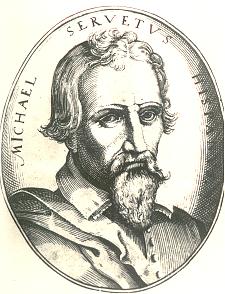 In 1553 Michael Servetus was arrested and burned at the stake in Geneva by order of the Protestant Geneva Governing Council for his heretical writings concerning the doctrine of the trinity. John Calvin was very influential in having this man arrested (which later led to his execution) and received gratitude from outside Protestant leaders for punishing this blasphemous man. In response to this execution Sebastian Castellio, a once-dear friend of Calvin, wrote two treatises that rejected the execution of heretics. In his treatise The Art of Doubt, Faith, Ignorance, and Knowledge Castellio asks this question: which doctrines should the people doubt and of which should they be certain? He argued that many passages in the Bible are difficult to believe and must be subject to doubt in order to avoid fanatic behavior and persecution. Michael Servetus’ last words were recorded as being, “Jesus, Son of the Eternal God, have mercy on me.”
In 1553 Michael Servetus was arrested and burned at the stake in Geneva by order of the Protestant Geneva Governing Council for his heretical writings concerning the doctrine of the trinity. John Calvin was very influential in having this man arrested (which later led to his execution) and received gratitude from outside Protestant leaders for punishing this blasphemous man. In response to this execution Sebastian Castellio, a once-dear friend of Calvin, wrote two treatises that rejected the execution of heretics. In his treatise The Art of Doubt, Faith, Ignorance, and Knowledge Castellio asks this question: which doctrines should the people doubt and of which should they be certain? He argued that many passages in the Bible are difficult to believe and must be subject to doubt in order to avoid fanatic behavior and persecution. Michael Servetus’ last words were recorded as being, “Jesus, Son of the Eternal God, have mercy on me.”
 U
U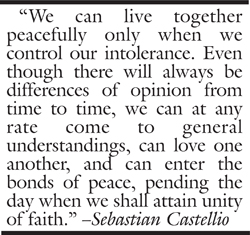 sing this historical narrative as an illustration proves that it was, and continues to be, a monopoly on truth that set fire to Michael Servetus and flew the planes into the Twin Towers. To avoid a certain pernicious coercion to uniformity, our faith must be coupled with our doubts. We finite beings will always, no matter the progressions of science, live in an age of uncertainty. This uncertainty is the tie that binds us throughout this fleeting glimpse of a life. So, how do we believe in God in an age of modernity and uncertainty? We believe in doubt, welcoming our fellow man into the discussion. If we must agree to disagree, we shall still stand in unity with faith, hope, and love despite our difference of opinions and we will humble ourselves before one another in a sacrificial uncertainty. And when we are gathered together with love (being the glue that bonds us), God is most definitely there.
sing this historical narrative as an illustration proves that it was, and continues to be, a monopoly on truth that set fire to Michael Servetus and flew the planes into the Twin Towers. To avoid a certain pernicious coercion to uniformity, our faith must be coupled with our doubts. We finite beings will always, no matter the progressions of science, live in an age of uncertainty. This uncertainty is the tie that binds us throughout this fleeting glimpse of a life. So, how do we believe in God in an age of modernity and uncertainty? We believe in doubt, welcoming our fellow man into the discussion. If we must agree to disagree, we shall still stand in unity with faith, hope, and love despite our difference of opinions and we will humble ourselves before one another in a sacrificial uncertainty. And when we are gathered together with love (being the glue that bonds us), God is most definitely there.
Brandon is a musician who enjoys community, listening to vinyl records, and reading religious/spiritual books. He lives in Oxford with his wife, Samantha, and works at Grisham Law Library of The University of Mississippi. Mr. Williams accepts all questions and comments. Feel free to contact him at brandon.brandonmichaelwilliams@gmail dot com or visit his blog at www.brandonmichaelwilliams.net.
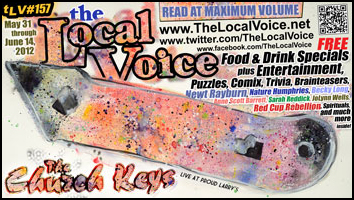
This article was published in The Local Voice #157 (May 31-June 14, 2012)…Click here to download the PDF of issue #157.
